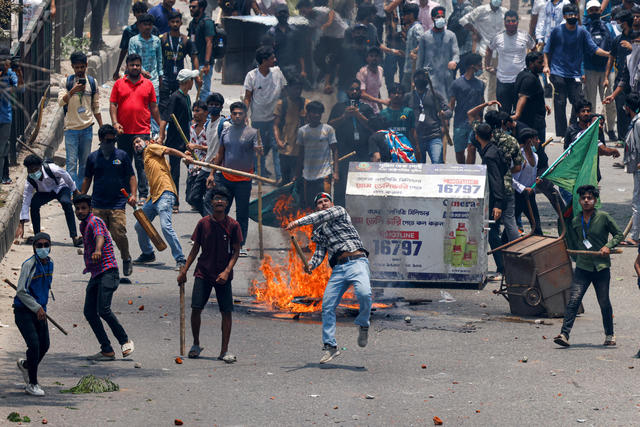Amid ongoing civil unrest, Bangladesh has extended the curfew

Authorities in Bangladesh have extended the nationwide curfew indefinitely amid persistent civil unrest triggered by a Supreme Court ruling on July 21. The verdict, which mandates that 93% of public sector recruitment be based on merit, reducing existing quotas, has led to widespread disruptions and violent clashes across the country. While the government supports the shift towards a merit-based system and plans to issue an official circular by July 23, various groups benefiting from the quota system have fiercely opposed this decision. In response to the unrest, the curfew includes ‘shoot-on-sight’ orders to the police.
Despite a brief relaxation on July 20 to allow access to essential supplies, violent incidents have continued. On July 20 alone, ten people were killed and 91 injured in clashes across Dhaka, including areas like Jatrabari, Azimpur, Mirpur, and Rampura. Police have used tear gas and grenades to disperse protesters. The previous day, 56 fatalities occurred in similar incidents nationwide, with sporadic clashes ongoing.
The impact on transportation and services is severe, with major international airlines reducing services to and from Bangladesh until July 26. Rail services on several routes have been halted due to security concerns, while road travel in Dhaka faces blockades and incidents of arson affecting buses. Key highways such as N5 (Dhaka-Aricha), N4 (Dhaka-Tangail), and N2 (Dhaka-Sylhet) have also been disrupted.
The government’s response includes declaring July 21-22 as general holidays, except for essential services, and deploying 300 units of Border Guard Bangladesh across the country, with 75 units stationed in Dhaka. Internet disruptions have affected telecommunications and media outlets. Significant protests and clashes continue in various areas of Dhaka and across the country.
Looking ahead, while the Supreme Court ruling addresses primary student demands, further unrest is anticipated. Opposition parties may join demonstrations seeking government changes. The military presence in urban centers is likely to persist, with potential curfew adjustments depending on the situation. Negotiations with student representatives could lead to the lifting of internet service suspensions.
For safety:
- Employers should account for employees in affected areas and maintain communication.
- Consider work-from-home arrangements near protest hotspots.
- Exercise caution with travel plans, distinguishing between essential and non-essential trips.
- Establish secure locations with adequate supplies for at least 72 hours.
- Maintain reliable communication channels for updates and alternative means of contact.
Individuals are advised to:
- Avoid participating in protests or political gatherings.
- Refrain from discussing sensitive topics publicly.
